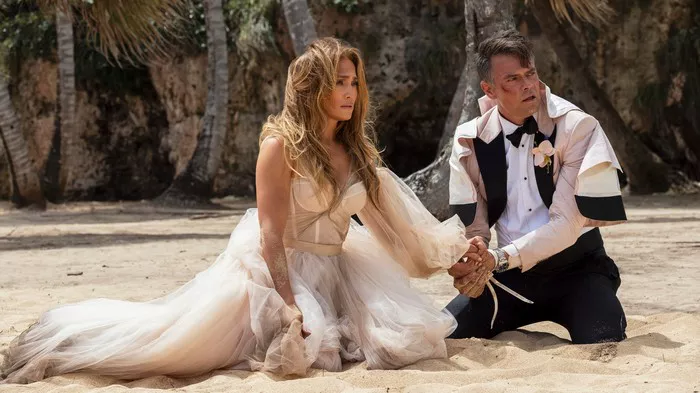MUMBAI, India – Indian weddings have long been celebrated for their grandeur, tradition, and multi-day festivities. While often perceived as extravagant displays of wealth, the industry has gained renewed focus following Prime Minister Narendra Modi’s 2024 appeal to affluent Indians and Non-Resident Indians (NRIs) to consider hosting their destination weddings within India rather than abroad.
“The Prime Minister’s remarks have spotlighted the multi-crore wedding industry, shifting perceptions from it being mere ‘fluff’ to an economic powerhouse,” says Parthip Thyagarajan, CEO of WeddingSutra.com. “The ‘Wed in India’ movement extends beyond logistical convenience. It is part of a larger trend driven by government initiatives to promote domestic tourism and a deeper desire among couples to reconnect with their heritage,” he adds.
As the peak wedding season winds down between late February and mid-March, luxury wedding planners and industry experts from WeddingSutra’s network share insights into the evolving market landscape and emerging opportunities.
Expanding Destinations: Beyond Rajasthan and Goa
Traditionally, Rajasthan, Goa, and Kerala have been the go-to destinations for Indian weddings. However, lesser-known locales such as Mahabalipuram and Pondicherry in Tamil Nadu, and Dehradun in Uttarakhand are gaining traction.
“These destinations have successfully positioned themselves as wedding hotspots, attracting couples from diverse cultural backgrounds,” says Neha Seth Arora, co-founder of Saffron String. “Beyond scenic beauty, locations like Kashmir, Hampi, and the Rann of Kutch offer immersive cultural experiences. Hotel chains and tourism boards should collaborate with wedding planners to introduce these destinations to a global audience,” she adds.
Wedding Décor: A Shift Toward Indigenous Craftsmanship
Wedding décor specialists are embracing the movement by sourcing materials locally rather than importing global trends.
“In the past, much of our work involved replicating international themes using foreign materials. Now, we actively incorporate local craftsmanship,” explains Chetan Chouhan of Mokshiva Wedding & Events.
Aakash Doshi, Founder of Zesst Events & Weddings, highlights the deeper cultural significance of this shift. “Working with traditional artisans has enriched our designs while also creating employment opportunities. When a guest admires a hand-painted mural and learns it was crafted by a local artist, it adds a meaningful layer to the celebration,” he says.
Photography: Storytelling Through a Cultural Lens
Photographers are capturing more than just wedding moments—they are curating narratives that reflect India’s rich heritage.
“Indian weddings have always been visually stunning, but now, couples want deeply personal elements woven into their stories,” says Rajesh Satankar, co-founder of Knotting Bells. “One of my most memorable assignments was in Rajasthan, where a couple’s love for nature led us to shoot portraits in a mustard field at sunrise. The images felt timeless.”
Echoing this sentiment, Megha Israni of Israni Photography states, “Every wedding frame now serves as an opportunity to showcase not just the couple but also the cultural and scenic essence of their chosen destination.”
The Economic Impact: Employment & Women Entrepreneurs
The booming wedding industry fuels employment and entrepreneurship across various sectors.
“Each wedding creates jobs for hundreds—from caterers and florists to local entertainers and transport providers,” says Chetan Chouhan.
Women, in particular, play a crucial role in this industry. Ekta Saigal Lulla of Weddings by ESL highlights, “Women entrepreneurs form the backbone of the wedding ecosystem—whether as mehendi artists, makeup professionals, designers, or décor specialists.”
Infusing ‘The India Story’ Into Weddings
The rising trend of incorporating Indian heritage into wedding experiences is reshaping celebrations.
“There is a growing desire to integrate ‘The India Story’ into every aspect of the wedding—whether through live ittar counters, block printing and bangle-making at Mehendi functions, or regional cuisine at receptions,” says Anvi Thaker of The Creative Company.
Abhirath Shah of ANS Weddings, who recently planned a grand wedding in Vrindavan, emphasizes, “A wedding in India is more than just an event. It becomes a vibrant tapestry of tradition, love, and culture. Guests leave not only with cherished memories but also with a piece of India ingrained in their experience.”
Destination Weddings: Merging Local Culture with Luxury
Bespoke wedding experiences now include collaborations with local businesses to enhance guest engagement.
Vithika Agarwal of Divya Vithika Wedding Planners, based in Bengaluru, shares, “At a destination wedding in Coorg, we partnered with a local coffee plantation for a coffee-tasting session, allowing guests to take home custom-blended coffee as wedding favors.”
Concluding on the growing impact of the movement, Abhirath Shah states, “The ‘Wed in India’ initiative has not only showcased the breathtaking beauty of Indian destinations but has also solidified India’s status as a global hub for luxury celebrations. Indian weddings are no longer just about extravagant venues—they offer immersive experiences steeped in tradition while embracing modern elegance.”

